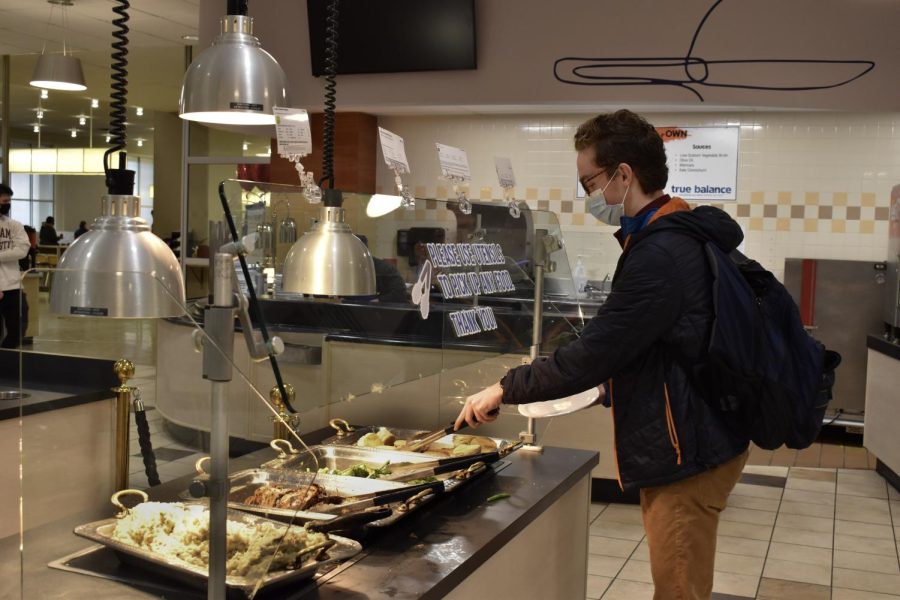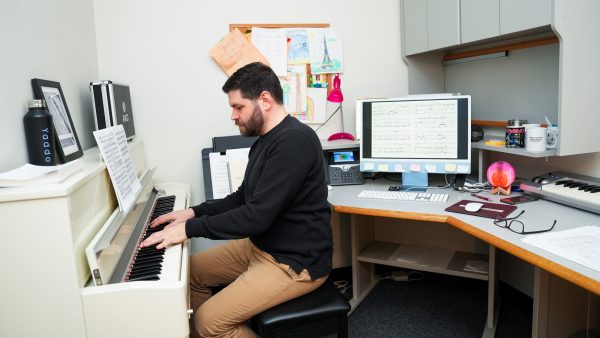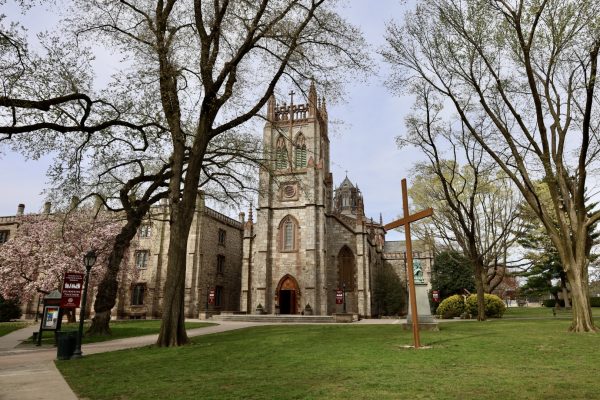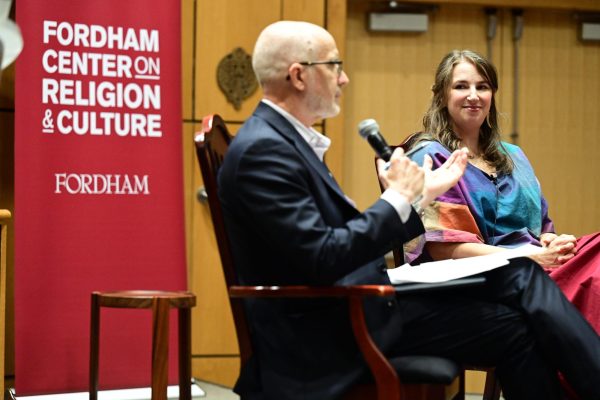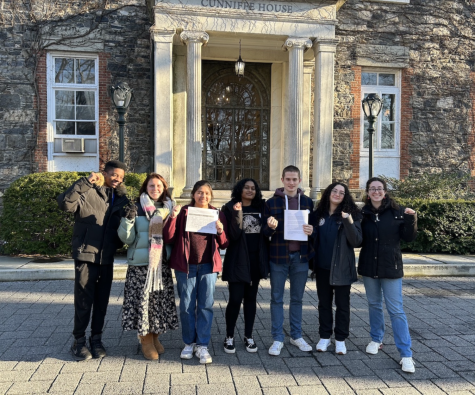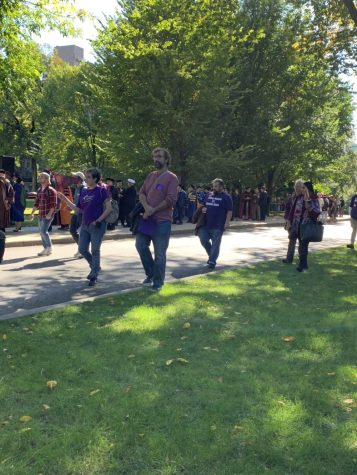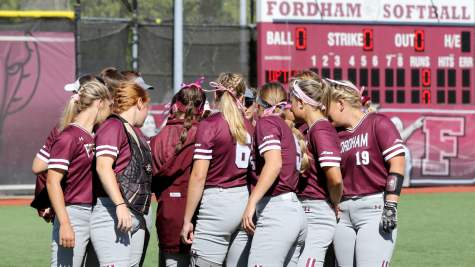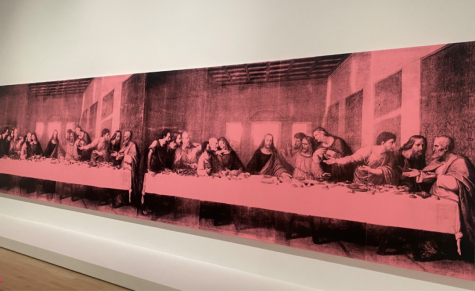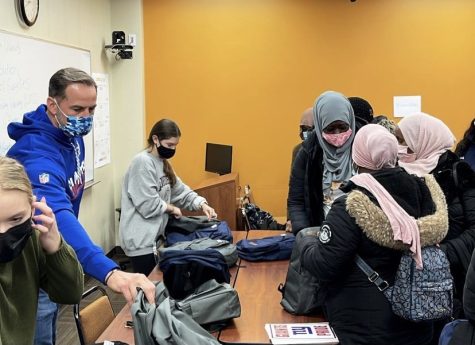A Look at University Dining and COVID-19
In the Omicron wave of the COVID-19 pandemic, Fordham’s dining services have been adjusted.
On Jan. 3, the university sent an email with a COVID-19 update, including information about university dining. It stated that indoor dining would “offer optional grab n’ go meals, allow for limited indoor dining at the main cafeterias at Rose Hill and Lincoln Center with appropriate social distancing and density mitigation initiatives, prohibit indoor dining in retail spaces that are too small to accommodate social distancing,” and consider expanding the use of other indoor spaces for casual dining.
According to Deming Yaun, university dining contract liaison, multiple grab n’ go options are available. All of the retail places are already grab n’ go, such as Urban Kitchen, Così and Boar’s Head Deli. The hours at all locations are also the same as before. Additionally, “All items in the Marketplace are available in ‘to-go’ packaging … Packaging is free of charge.”
Protocols from the previous semester are also still in place to mitigate the number of people dining in the Marketplace, “except for certain times during the week, the line itself, having to present the ID and then checking in keeps the population at the tables fairly well social distanced, or people eating with their “campus family group.” There hasn’t been a problem where it has been so overcrowded that we need to worry about it or slow it down. The tables and chairs are set up for group social distancing with friends who know each other and are around each other more,” said Yaun.
Olivia Griffin, FCRH ’25, said she does not find the protocols effective, “I agree with the decision to cancel indoor seating at Così because the space is so limited to begin with. However, the cafeteria should have kept the previous amount of tables and seats. Recently, the cafeteria has been overcrowded, and students are squished into the space — this was not the case when we had more seating options.”
While the university has not expanded the use of any indoor spaces for casual dining, “students are still free to eat in the lounges and any other open spaces on campus”, said Yaun.
Andy Diaz, FCRH ’25, does not feel like students are being properly informed. “Right now, students feel there is a lack of transparency and communication from the Fordham administration. Many students arrived after break under the impression that social distancing within food locations on campus would be even more enforced due to the omicron rise. Students also believed that to-go options would be readily available,” Diaz said.
The student continued, stating, “spacing between tables in the caf has decreased, and few students are aware that to-go boxes are available. Many students, including myself, are somewhat comforted by the continued sense of ‘normalcy’ on campus. However, this lack of communication leads to further confusion, and that confusion leads to frustration.”
Diaz thought about how COVID-19 responses across the university did not share similar values as many of its students. “A similar example is the reopening of the gym and the frustration felt by many students because of the lack of communication and vagueness around the reasoning for its postponement,” Diaz said.
“At the core of these issues is simply transparency; students want to know what’s happening at their school,” said Diaz.
In addition to the new protocols, there are COVID-19 guidelines for university dining that are still in place from the previous semester, some regulating the staff.
Yaun also described some of the continuing protocols:
“The staff is socially distanced apart [at] the station[s]. There is one person per station in the preparation area, where, in the past, there might have been three or four [people]. Their schedules are spread out through later hours so that whatever preparation can be done with social distance maintained while the operation is closed. Those employee or staffing protocols are in place and have not changed,” said Yaun.
“For the foreseeable future, these protocols will remain in place,” said Yaun.
“Since March of 2020, whatever happens next is what we have to arrange for,” Yaun said.
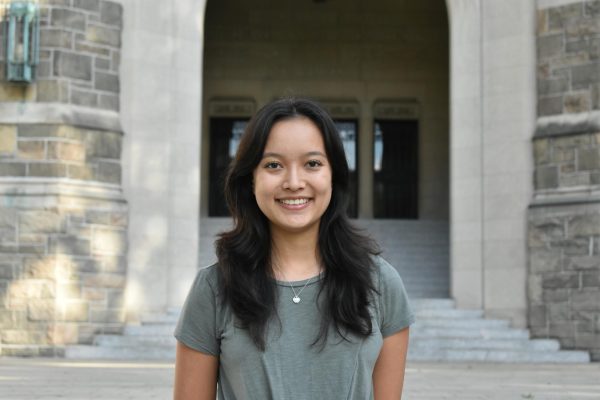
Emma Kim is a junior from Pittsburgh. She is double majoring in economics and English. She started as a contributing writer for news in her freshman year...





































































































































































































